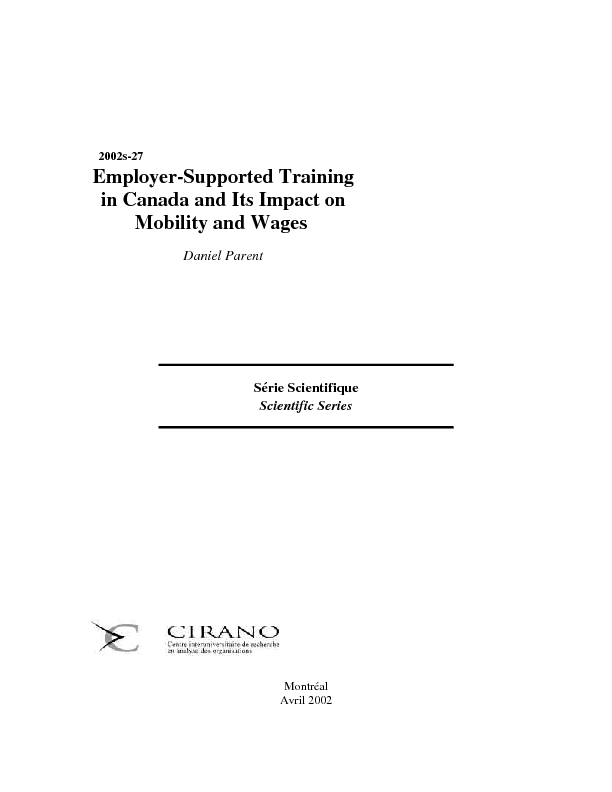Employer-Supported Training in Canada and Its Impact on Mobility and Wages
Using information on job histories and on two training questions contained in Statistics Canada's Follow-Up to the School Leavers Survey, this paper seeks to answer three basic questions: 1) wWhat are the characteristics of the trainees?; 2) Does the receipt of employer-supported training cause an increase in the wage paid to those young workers?; and 3) Does it improve the degree of job attachment?; I find that more educated young people are somewhat more likely to be trained than high school dropouts although there is strong evidence of selectivity as employers clearly seem to support training for those that have the most ²favorable'' characteristics. Also, controlling for unobserved individual characteristics, I find that training has a sizeable wage impact for men while the effect is much more modest for women. Finally, results using Chamberlain(1985)'s fixed-effects hazard model show that the conditional probability of the employment relationship being terminated decreases substantially for trainees, which is consistent with the notion that the skills learned by trainees may have a sizeable firm-specific component.
[ - ]




